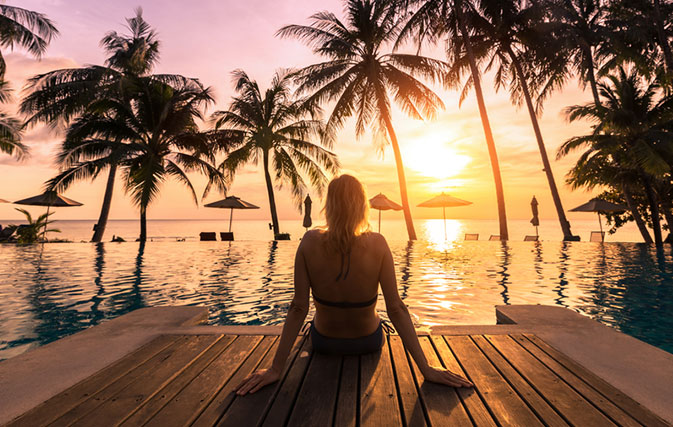TORONTO — There’s no crystal ball for what travel will look like post-COVID-19 but that hasn’t stopped the travel industry from weighing in with their predictions about how the pandemic will alter travel habits in the coming months.
Once travel re-starts, destinations, resorts, hotels, airlines, cruise and tour operators and other suppliers will need to play a primary role in alleviating travellers’ anxieties about re-engaging with the outside world, says Lynn Kaniper.
Kaniper is co-owner and president of Dana Communications, a marketing agency with clients in the travel and hospitality industries.
The true challenge will be finding the correct balance across five competing operational factors in what can only be described as the “new normal,” she says.
The CTO is also looking at safety precautions, particularly in its dining venues, as resorts across the Caribbean look to best practices as they prepare to eventually reopen.
When it comes to airlines, “replacing entire fleets with new aircraft to allow for greater personal space would be cost-prohibitive,” acknowledges Kaniper. “Fortunately, many airlines are already clearing sparsely booked flights for takeoff and/or eliminating the dreaded middle seat to allow for passenger social distancing. It would be wise to continue these practices until traveller confidence is fully restored.”
She notes that in the fight against COVID-19 and future pandemics, some airport security protocols put in place after 9/11 have been tweaked “to protect the flying public against a new, invisible enemy.” Revised TSA regulations at U.S. airports mean personal items such as wallets, keys and mobile phones can be stowed in carry-on items to go through the X-ray system. Face masks can be worn throughout the screening process and up to 12 fluid ounces of hand sanitizer can now be packed into carry-on bags.
In restaurants, including hotel and resort restaurants, adding or expanding outdoor seating for alfresco dining, eliminating the once-in-vogue communal table and distancing diners are all tweaks that can be made to an existing restaurant’s layout, says Kaniper. “Another critical change we should see in eateries and conference F&B? A calculated step away from buffet-style service toward individually plated and served meals as well as single-serve or boxed refreshments.”
The CTO and its hospitality experts, Emile Gourieux and Rico Louw, senior managers at STR, agree. They say Caribbean hotels may have to scrap conveniences such as buffets and drinks stations and reduce the sitting capacity of à la carte restaurants in order to attract post-COVID-19 guests.
“We may never return to travel as normal, as we understood it before. Things like buffet breakfast may never be seen again. So there’s a lot of things that we need to rethink,” says Gourieux, STR’s hotel sector business development executive in Canada, Mexico and the Caribbean. “At least at the very beginning of recovery when people are coming back, people are going to be very leery about close contact. So, the hotels that succeed and thrive are going to be the ones that find a way to address that anxiety. So more in-room dining options for families. A lot of all-inclusives have different dining options where you have the buffet, that’s going to be tough. Even a la carte, they’re going to have to cut capacity by half to allow that [social] distancing. So where hotels can add value in comfort and confidence that’s going to be a plus. Offering a special dinner on a beach where you secluded and comfortable, that’s going to be a plus.”
“A buffet may be totally out of the question in terms of moving forward, [so will] minibars,” adds Louw, the senior account manager and client liaison at STR.
Post-pandemic, travellers will be on watch for evidence of “ever-higher standards of cleanliness”, says Kaniper. In addition to ubiquitous hand sanitizer dispensers, hotels and resorts could also distibute a welcome amenity with a bottle of hand sanitizer, disinfectant wipes and other personal-sized hygiene and cleaning products.
Travellers can also expect to see more technology including everything from mobile check-ins and room keys to chatbot customer service and smart hotel rooms, she says.
The pandemic also has repercussions for ‘overtouristed’ destinations. “We will come out of this pandemic, necessarily and forever changed, but at-the-ready for the pent-up demand that is certain to come. Activity will begin with local and regional leisure and business travel to second- and third-tier destinations and, slowly-but-surely, expand outward to the largest cities—first domestically, then abroad,” says Kaniper.

